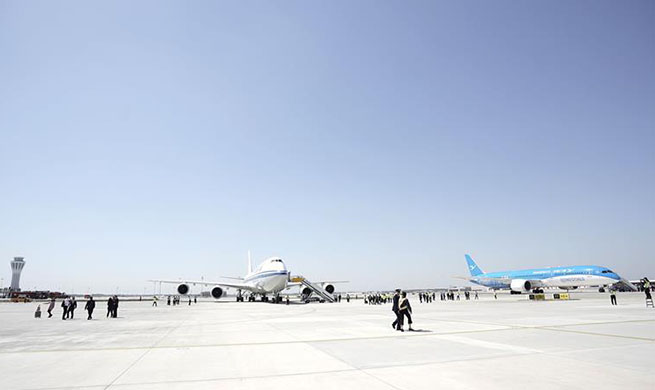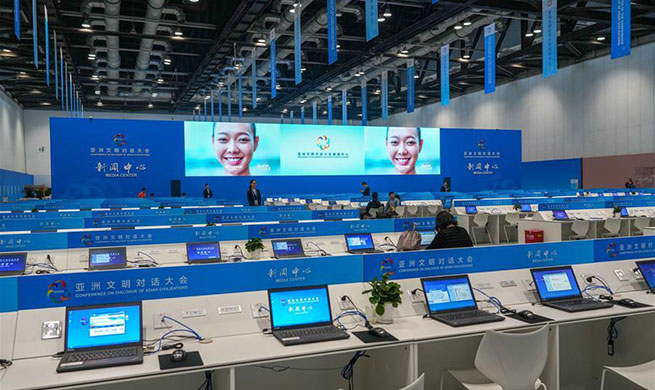by Levi J Parsons
SYDNEY, May 13 (Xinhua) -- U.S. protectionist policy is "definitely not good news for Australia's economy" and worries many in the global community, said an Australian economist.
"In terms of spill-overs ... it's clear we're going to see some negativity coming through," said Sarah Hunter, chief economist at BIS Oxford Economics, Australia's leading provider of industry research, analysis and forecasting services.
"But the immediate impact is absolutely, definitely going to be negative, both in terms of financial markets and more generally, economic sentiment, and also very likely in terms of commodity prices," she told Xinhua in a recent interview, expecting a "downward correction" of the country's commodity prices.
Hunter warned that global supply chains may also come under fire.
"It'll have a direct negative impact on U.S. bilateral trade, but that will then spill over through to supply chains in particular through to Asia," she said. "It will ripple across the global economy and that will definitely be a drag on growth."
As a resource-based, export-driven economy which relies on trade, Australia could undergo a weaker jobs growth, or even upward pressure on the unemployment rates in the face of a slowdown in global growth, Hunter said.
According to the Australian Export Council, international trade supports one in five jobs in the country.
The United States now appears solely focused on further isolationism, leaving many in the global community concerned, Hunter added.
In the name of national security and protecting domestic industries, the White House has placed steep tariffs on billions of dollars' worth of products from its major partners, raising trade tensions around the world and shaking the foundation of global trading system.
Washington's tariff hikes on steel and aluminum from Europe have been disturbing the cross-Atlantic ties, which are also clouded by tariffs threatened between Brussels and Washington over subsidies in the aviation industry.
Also, the United States on Friday increased additional tariffs on 200 billion U.S. dollars' worth of Chinese imports from 10 percent to 25 percent, a move Beijing said it deeply regrets and will be forced to respond to with necessary countermeasures.
While the situation appears fragile, Hunter holds out some hope for a resolution.













